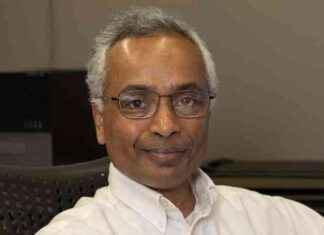On Tuesday evening, Herzog held a first “dialogue meeting” on the judicial reform at his residence in Jerusalem. It was attended by representatives of the ultra-right governing coalition and the two main opposition parties. Herzog’s office said the meeting took place “in a positive atmosphere.”
The secular Arab alliance Hadash-Taal is one of the three small parties the President then spoke to on Wednesday. “We have no confidence in Netanyahu’s postponement announcement based on past experience,” Hadash-Taal said afterwards.
The federal government welcomed the talks between the government and the opposition. As an “intermediate step”, this is “good news”, said government spokesman Steffen Hebestreit in Berlin. Also, “that the situation may relax a little” is good news.
After weeks of mass demonstrations and nationwide strikes in protest against the judicial reform, Netanyahu announced on Monday evening in a dramatic about-face that he would pause the legislative process in order to seek an amicable solution in dialogue with the opponents.
The opposition initially reacted sceptically, but signaled a fundamental willingness to talk. However, in a joint statement by the main opposition parties, Yesh Atid and the National Unity Party, both warned on Tuesday that the talks would end immediately “if the law is put on the parliament’s agenda”.
Biden told journalists during a visit to the US state of North Carolina that he was “very concerned” about the Israeli government’s course. “Israel cannot continue on this path,” he criticized. He hopes “that the prime minister will negotiate a serious compromise, but that remains to be seen.” For the time being, he will not invite Netanyahu to Washington.
Netanyahu replied that he welcomed Biden’s “longstanding commitment to Israel” but would not bow to pressure: “Israel is a sovereign country that makes its decisions according to the will of the people and not by outside pressure, including best friends.”
Netanyahu then stressed on Wednesday that Israel’s alliance with the US is “unshakable”. “Nothing can change that,” he said in a virtual speech at a democracy summit in Washington. Addressing international critics, the prime minister vowed that Israel “was, is and always will be a proud, strong and vibrant democracy as a beacon of freedom and shared prosperity in the heart of the Middle East”.
However, there is still no sign of an end to the protests against the plans of Netanyahu’s right-wing coalition.
The announced break in the reform project is “another attempt by Netanyahu” to manipulate the Israeli public in order to “weaken the protest and then set up a dictatorship,” the demonstrators’ rally said. One of the alliances behind the protests wants to continue demonstrating “as long as the coup against the judiciary is not completely stopped”.
Meanwhile, Netanyahu was expected to explain whether his sacking of Defense Minister Joav Gallant still stands. According to the government, the minister, who was dismissed on Sunday for his criticism of the judicial reform, took part in the launch of a new spy satellite on Wednesday in an official capacity.
The government’s reform plans aim to limit the powers of the judiciary. Netanyahu, who is on trial for corruption, says the reform is necessary to restore balance in the separation of powers. Critics, on the other hand, fear that the separation of powers will be abolished and that democracy will be undermined.
who












